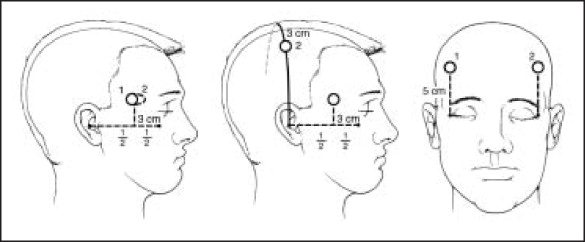Under proposed changes to legislation discussed last year, mental health patients would no longer be able to receive electroconvulsive therapy (ECT) without giving consent. “I know for a fact that we are taking out ‘unwilling’ from the ECT piece. That to me always did seem outrageous, so that is going to go,” Kathleen Lynch, Minister of State for Primary Care, Mental Health and Disability, said when speaking about the reforms to mental health legislation last July. Cue the cuckoo’s-nest image of Jack Nicholson being led into a clinical room, held down by a host of clinicians and being shocked into submissive institutionalisation.
Unfortunately, for the more romantic among us, this is not the case. And even more unfortunately, it is the portrayal by the media of electroconvulsive therapy (ECT) in this manner that is insidiously perpetuating mental health stigma. And perhaps worst of all is the fact that this statement was made by the Minister for Mental Health.
ECT is a highly effective treatment for depression, particularly severe depression with delusional and hallucinatory elements. It is administered in conjunction with general anaesthetic and muscle relaxants, and patients receive anywhere from six to 20 treatments over a number of weeks, usually with two treatments per week.
Many of the objections to ECT found in the media deal with the interpretation of consent. Consent implies that a patient has the capacity to make an informed decision about the treatment they are about to receive. Having capacity in turn implies that the patient can understand the information relevant to the decision, retain the information about the decision, weigh up the pros and cons of that decision and communicate the decision, when made. The ‘unwilling’ patients that Ms. Lynch refers to in the instance above are those who cannot consent. These people are not Jack Nicholsons being led into a grizzly clinical room, to writhe and convulse, under the weight of giant orderlies in white uniforms. These people are so profoundly depressed, so profoundly catatonic that they believe they are rotting from the inside out; they believe that they are already dead. They do not have the ability to understand and make an informed decision regarding their treatment. This is why 7.2% of ECT treatments in Ireland were given ‘without consent’ in 2012.
We are very fortunate to be part of a generation that is breaking down the stigma of mental health. Over the past number of years, Trinity has run incredible campaigns promoting mental health and getting people talking. We have role models like Lena Dunham and Conor Cusack who speak frankly about their mental health. And though this social shift is changing attitudes, there is still a significant room for change amongst the Irish population and particularly for our Minister for Mental Health, it would seem.
As with many social issues, it is ignorance and complacency that perpetuates the problem. In this instance, sensationalist media misrepresentation and reciprocal public ignorance is perpetuating the fear that exists around ECT, and by extension, mental health. If you take anything from this, take this: Jack Nicholson is fantastic at selling movie tickets, sensationalism is fantastic at selling newspapers, but most importantly, ECT is fantastic at treating depression.
Clarification – The statement from Minister Lynch referred to above could imply that the author is referring to patients ‘unwilling’ to give consent in his defence of this treatment. The author’s intention was instead to defend the use of ECT in the case of patients ‘unable’ to give consent to undergo the treatment, due to the degree of their illness. Those ‘unwilling’ are separated from those ‘unable’ by the fact that they are aware of their surroundings and situation, and have decided not to undergo ECT. The author agrees with Minister Lynch that the use of ECT on those ‘unwilling’ should be removed from legislature.







